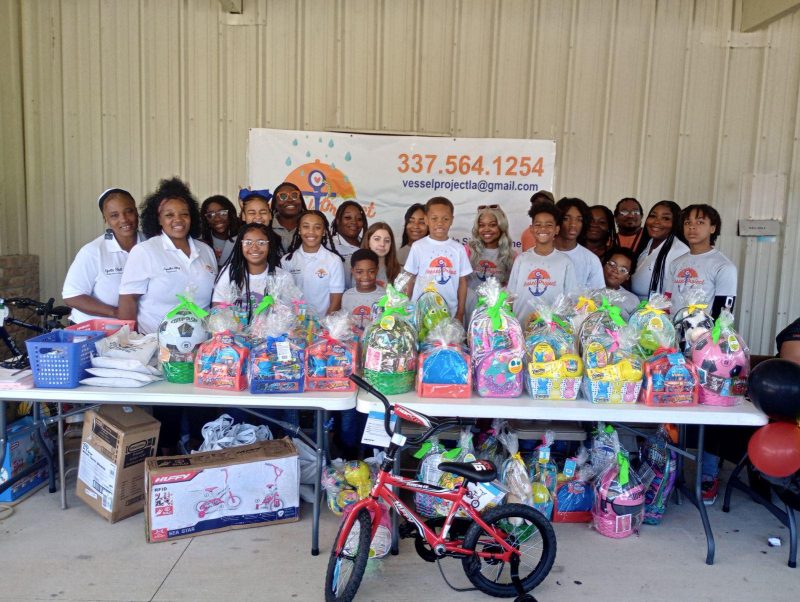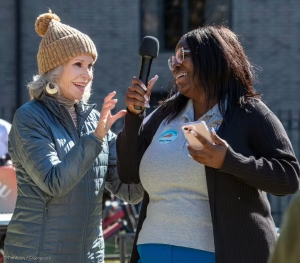
In Southwest Louisiana, generations have lived close to the land and water, drawing life from fishing, farming, and rich cultural traditions. But these communities are in crisis, facing increasingly relentless storms from the Gulf of Mexico and the looming threat of more than 200 petrochemical plants.These towering industrial giants release clouds of toxic pollution that choke the air and fuel climate threats, hitting hardest the region’s Black, Indigenous, and low-income residents. Born in Lake Charles in the aftermath of multiple federally-declared disasters, The Vessel Project started as a grassroots mutual aid and disaster relief effort. By meeting emergency needs in a way that is as efficient and barrier-free as possible, they help people maintain their dignity and advocate for themselves. Over time, the group has broadened its work to include fighting for the safety of their community by opposing new polluting industries, such as proposed LNG export sites. Their motto “We are vessels for the love of our community to flow through” drives everything they do.

Jane Fonda joins Vessel Project founder Roishetta Ozane in New Orleans at a rally to stop LNG expansion, January 2024.
Source: The Vessel Project website
The Vessel Project is led by Roishetta Ozane, a mother of six and longtime resident of Sulphur, who lost her home during one of the region’s devastating hurricanes. That experience pushed her to transform a local mutual aid effort into a full-scale community defense organization. With a small team and dedicated volunteers, they respond to crises not just with food and shelter but with advocacy, education, and legal support. Ozane has been a leading voice in resisting the expansion of liquefied natural gas terminals like CP2, stating, “We cannot allow our community to become a sacrifice zone for corporate interests.” Her stance reflects the Project’s broader mission: confronting the systems that deepen vulnerability in storm-prone, heavily industrialized communities. The group now partners with organizations such as Healthy Gulf and Taproot Earth to challenge dangerous development, while remaining grounded in local relationships and everyday care. Their work makes clear that recovery is not enough – protection and prevention are paramount for one simple reason, according to Ozane. “Our children deserve clean air, safe water, and a thriving ecosystem.”